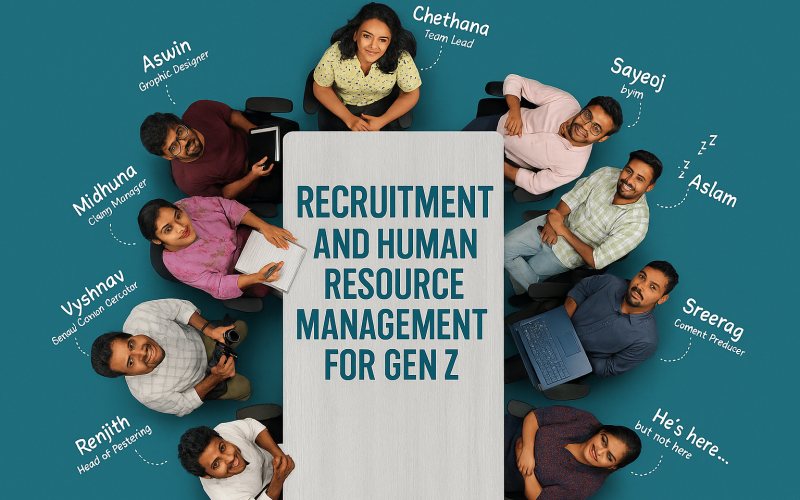Professions Where Expertise and Degrees Must Come Before Soft Skills
While many employers in Vietnam’s labor market from 2025 to 2030 emphasize soft skills such as communication, critical thinking, and teamwork, there remain several professions where degrees, certifications, and specialized knowledge are indispensable “licenses to practice.”
General Trend: Soft Skills on the Rise, but Knowledge Remains the Root
According to the HCMC Center for Forecasting Manpower Needs and Labor Market Information, from now until 2030, Vietnam will need about 4.5–5 million workers with college or university qualifications, concentrated in healthcare, information technology, engineering–technology, and finance. At the same time, 67.7% of employers in Vietnam reported that they highly value soft skills (VietnamWorks Survey 2024).
However, data also shows that in specialized professions, expertise remains the decisive condition. Mercer’s 2023 Human Capital Report for Asia–Pacific indicated that in Vietnam, employees holding professional certifications earn 18–25% higher salaries on average than peers in the same roles without certification. This reflects a reality: soft skills may help employees stand out, but they are not enough without a solid foundation of knowledge.
1. Healthcare: Human Lives Rest on Expertise
Healthcare is a prime example. To practice, a doctor must undergo 6–8 years of formal training, 18–24 months of clinical residency, and finally pass a licensing exam.
According to the Ministry of Health, by the end of 2024 Vietnam had about 510,000 healthcare workers, including over 94,000 doctors. To ensure patient safety, the workforce must continuously update knowledge through Continuous Medical Education (CME).
As one surgeon shared: “Mistakes in soft skills can be corrected, but mistakes in expertise can cost a patient’s life. That is why hospitals put professional standards first.”
2. Engineering – Construction – Manufacturing: Absolute Precision
Fields such as construction, mechanics, electronics, and product manufacturing require engineers to master international standards (Eurocode, ACI, TCVN).
For instance, a mere 2-millimeter error in a concrete bridge structure can misalign load distribution, risking collapse. The Ministry of Construction reported more than 200 structural incidents between 2020 and 2024, most related to non-compliance in design or supervision.
In manufacturing, QA/QC engineers must apply ISO 9001, IATF 16949, and tools such as Six Sigma or FMEA to minimize product defects. These are competencies that soft skills cannot replace.
3. Core IT & Cybersecurity: Certifications as the Benchmark
IT is often viewed as flexible, yet in “core” areas such as infrastructure, security, and big data, technical expertise remains decisive.
TopDev’s 2024 report highlighted a shortfall of about 150,000 developers annually in Vietnam, with cybersecurity and systems roles making up 30%. Employers frequently prioritize candidates with international certifications such as CCNA/CCNP (Cisco), RHCE (RedHat), CEH/OSCP (cybersecurity), and AWS/GCP (cloud).
4. Aviation & Maritime: No Compromise on Standards
In aviation, to become a commercial pilot, candidates must log at least 1,500 flight hours and pass multiple rounds of medical and psychological tests. Similarly, deck and engine officers in maritime fields require STCW certification (Standards of Training, Certification, and Watchkeeping).
According to the Civil Aviation Authority of Vietnam, in 2023 there were more than 1,400 active pilots in domestic airlines, 30% of whom were foreign. Strict technical requirements make these industries “off-limits” to candidates without a solid technical foundation.
5. Law – Auditing – Finance: Compliance Comes First
Lawyers must pass the Bar Federation exam and complete at least 12 months of apprenticeship. Auditors signing official reports are required to hold a Vietnamese CPA or international certifications such as ACCA or ICAEW.
According to the Ministry of Finance, by 2024 Vietnam had nearly 14,000 licensed auditors, still insufficient compared to the demand from over 700 auditing firms.
In banking and finance, risk management and quantitative positions often require CFA or FRM certifications. A major commercial bank in Hanoi even requires CFA Level 2 as a minimum condition to apply for its investment analysis department.
6. Education and Academia: Knowledge Must Be Evidenced
University lecturers must hold at least a Master’s degree, with certain specialized fields such as Medicine, Pharmacy, and Engineering requiring a PhD.
According to the Ministry of Education and Training, in the 2023–2024 academic year, Vietnam had over 75,000 university lecturers, of which about 25% held a doctoral degree. This ratio is considered low compared to regional standards. As a result, many universities are racing to raise academic qualifications to meet international accreditation requirements (AUN-QA, ABET).
Why These Professions Cannot Overlook Expertise?
There are four main reasons:
- High Risk: Direct impact on health, lives, and social assets.
- Strict Standardization: Governed by law, international standards, and regular audits.
- Technical Complexity: Knowledge requires years of training, not short-term learning.
- Verifiable Evidence: All processes and models must be reproducible and backed by proof.
Employer Perspective: Complement, Not Replace
According to Anphabe’s 2024 survey, 72% of businesses said soft skills are important for long-term growth, but 65% also emphasized that without expertise, candidates cannot be considered for key positions.
Mr. Le Van H., HR Director of an FDI corporation in Binh Duong, stated: “Soft skills help employees advance faster, but to pass the initial recruitment stage, candidates must have solid knowledge and professional certification.”
The Two Arms of the Modern Workforce
The two arms of today’s workers are expertise and soft skills. Expertise enables them to stand firmly on a foundation of knowledge, qualifications, and professional standards; soft skills allow them to reach further, adapt, and expand opportunities. In a volatile labor market, only when both arms develop in harmony can workers truly compete: expertise is the root for recognition, and soft skills are the wings that carry them higher in their career journey.













